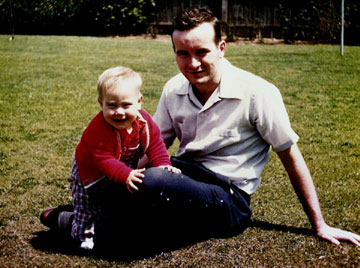I recently saw the new version of True Grit. Once again, the Coen brothers have written and directed an engaging, thought-provoking, and cinematically stunning movie.
But, for me, one of the most striking parts of True Grit was not its look, but its sound, specifically, its soundtrack. The composer, Carter Burwell, a frequent collaborator with the Coens, has written a soundtrack that’s based almost completely on hymn tunes, especially “Leaning on the Everlasting Arms.”
We might wonder why the Coens, who are Jewish, would choose such music for their film, and how they even knew it. Ironcially, according to Ethan Coen, they knew “Leaning on the Everlasting Arms” from another movie, The Night of the Hunter, where it is sung by an insane murderer. The Coens wanted to use music that reflected point of view of True Grit‘s protagonist, 14-year-old Mattie Ross. According to Coen, she is “an old Protestant at the age of 14.” So they picked a hymn that would have been sung by Protestants in the late 1800s, the era in which True Grit takes place.
In fact, “Leaning on the Everlasting Arms” was written by a couple of late nineteenth-century Protestants. The two men who wrote the lyrics and music for this hymn were, in fact, Presbyterians. Anthony J. Showalter was an elder in the First Presbyterian Church of Dalton, Georgia. Elisha A. Hoffman later became the pastor of Benton Harbor Presbyterian Church. In his spare time, he wrote thousands of hymns, including “I Must Tell Jesus” and “What a Wonderful Savior,” as well as “Leaning on the Everlasting.”
How these two friends came to work together on this hymn is a fascinating and touching story. Showalter was a church music teacher who taught many throughout the South to sing gospel songs. One day in 1887, he received letters from two of his students, both young men who had recently lost their wives. Showalter sought to console them with a verse from Scripture, and turned to Deuteronomy 33:27, which reads in the King James Version: ” The eternal God is your refuge, and his everlasting arms are under you.” As he read this verse, Showalter imagined the refrain of a hymn, “Leaning, leaning, save and secure from all alarms; Leaning, Leaning, leaning on the everlasting arms.”
After writing to the grieving widowers, Showalter also wrote to his friend and fellow hymn-writer, Elisha Hoffman, asking him if he could write verses for the refrain. It seems that Showalter was stuck with nothing but a chorus. In time, Hoffman wrote back with three stanzas, which Showalter put to music. The result was the now-famous hymn, “Leaning on the Everlasting Arms.”
Tomorrow, I’ll examine the lyrics of this hymn and offer a few observations on their significance.

